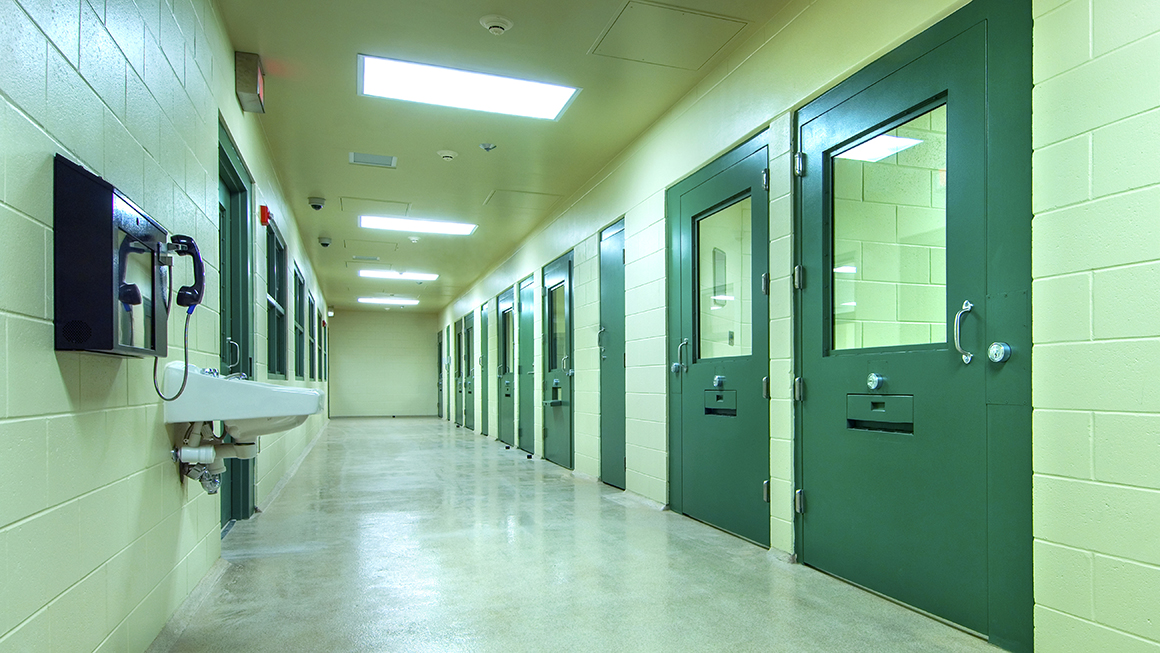
The most recent data available, from 2012 to 2018, found that incidents of sexual abuse in correctional facilities increased steadily. Despite this rise, many cases remain unreported (PDF) because of fear of retaliation and the stigma associated with reporting sexual abuse. Notably, from 2016 to 2018, staff-on-incarcerated person abuse accounted for 46 percent of these incidents.
To address sexual abuse in correctional facilities, lawmakers passed the bipartisan Prison Rape Elimination Act (PREA) in 2003. The act established the National Prison Rape Elimination Commission, which developed a set of proposed standards for preventing, reducing, punishing, and detecting sexual abuse in correctional facilities. The US Department of Justice released regulations based on the proposed standards in 2012.
Despite these standards being in place for almost a decade, by 2020, only 21 states and territories were fully compliant. States struggle especially with two key standards: allowing incarcerated survivors to report sexual abuse externally (PREA Standard 115.51/115.351) and providing external confidential emotional support services in response to sexual victimization (PREA Standard 115.53/115.353).
The Urban Institute and National Sexual Violence Resource Center (with funding from the Office on Violence Against Women with support from the Bureau of Justice Assistance), partnered to determine whether a well-planned national service call line could help correctional facilities protect survivors. Our assessment included conversations with 165 people—including federal and state corrections staff and leadership, PREA auditors, victim service providers, and incarcerated people—and revealed several obstacles to reporting sexual abuse and accessing emotional support services.
Then, we developed a blueprint that outlines ways correctional facilities can overcome these barriers, comply with the two PREA standards, and address the sexual abuse crisis for incarcerated survivors. Here are six of the challenges facilities face and strategies to tackle them through a national service line.
Addressing lack of confidentiality and privacy
Incarcerated people lack confidentiality, anonymity, and privacy when reporting sexual abuse and accessing emotional support services. This can lead to identification, retaliation, and stigma, deterring survivors from seeking help. To address this issue, our blueprint recommends ensuring privacy and confidentiality to the extent possible in all ways of using the service line. By providing a private, confidential service line, along with a secure physical space, survivors may feel more comfortable using these services.
Addressing lack of staff responsiveness
Within correctional facilities, there is a lack of responsiveness and appropriate reactions from staff when survivors report sexual abuse or seek emotional support services. When correctional staff fail to take survivors’ needs seriously or avoid following the necessary steps outlined by PREA, survivors may experience fear, embarrassment, and retaliation. To address this issue, training for all service line stakeholders is key. This involves initial and annual training on reporting and accessing support services for all staff and volunteers at correctional facilities, including those operating the service line, victim service providers, and advocacy organizations.
Overcoming technological barriers
Correctional facilities often experience internet and phone connectivity issues, which hinder incarcerated survivors from reporting sexual abuse or accessing emotional support services. Technology barriers within a facility can leave survivors unable to reach out for the help they need. To address this, the service line should have routine maintenance, which includes regular testing of technological systems. By ensuring the internet and phone systems are reliable and consistently functioning, facilities can provide uninterrupted access to reporting and support services.
Improving services to support overlooked populations
People who are deaf or hard of hearing, non-English speakers, or those who have limited English proficiency are often overlooked. Many incarcerated people are uncertain about the availability of services for these groups, and often, these services must be specifically requested from staff, compromising anonymity and confidentiality. To address this issue, the service line should prioritize accessibility for overlooked populations. This involves providing confidential interpretation and language translation services in all available languages. These services would help overlooked populations access support without compromising their privacy or creating additional barriers.
Establishing and maintaining partnerships to support incarcerated survivors
Creating and maintaining partnerships between correctional facilities and external service providers can be challenging for many facilities. Problems often arise from strained relationships between providers and correctional staff, geographic barriers, and misunderstandings of PREA standards. To address these issues, we suggest several key components of the service line: one 24/7 line for both reporting and accessing emotional support services, having a non-law enforcement recipient of reports, and ensuring providers are specialized in delivering trauma-informed support services to incarcerated survivors of sexual abuse. These features can reduce the burden on correctional staff and local service agencies, especially in rural areas where support is sometimes inaccessible.
Improving communication and education for incarcerated people
Incarcerated people and correctional staff receive limited and inefficient communication about how to report sexual abuse and access emotional support services. Some facilities provide only internal options, while others offer both internal and external ways to report and access support services. These inconsistencies create varying levels of access and knowledge, leading to confusion, discomfort, and fear. To address this, we recommend comprehensive and frequent education for incarcerated people. Regularly informing incarcerated people about their options to report and receive services can help improve awareness and understanding.
Every incarcerated survivor deserves access to compassionate support and effective treatment. A national service line could bridge the gap between incarcerated survivors and external support while ensuring correctional facilities comply with PREA Standards 115.51/351 and 115.53/353. Our report and blueprint offer a comprehensive summary of current challenges and four potential implementation models for agencies to ensure incarcerated survivors can report sexual abuse, address their needs, and heal discretely with the help of an outside agency.
Let’s build a future where everyone, everywhere has the opportunity and power to thrive
Urban is more determined than ever to partner with changemakers to unlock opportunities that give people across the country a fair shot at reaching their fullest potential. Invest in Urban to power this type of work.